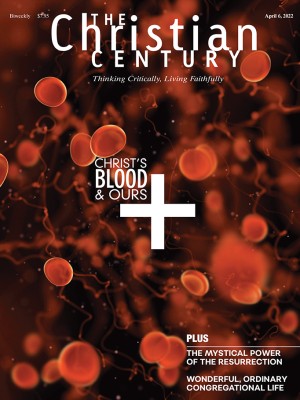In two years, the UCC has paid off $100 million in Americans’ medical debt

The United Church of Christ has now paid off more than $100 million in medical debt for people across the United States.
The UCC announced on February 14 that it used $200,000 from one of its annual Giving Tuesday campaigns to purchase and pay off $33 million in medical debt for residents of Ohio, where the mainline Protestant denomination is based.
That brought the total medical debt the UCC has purchased and paid off since late 2019 to more than $104 million.
The donation comes as part of RIP Medical Debt’s A Nation That Cares campaign, rallying churches and other Christian nonprofits to raise $5 million to relieve roughly $500 million of medical debt across the country. The UCC was one of the first groups to donate to the nonprofit’s campaign, and its donation so far is the largest, according to RIP Medical Debt.
The donation is also the culmination of UCC efforts to purchase and pay off medical debt that started at Thanksgiving more than two years ago.
The effort was launched in Chicago when Trinity UCC joined with local churches from other denominations to raise $38,000 to pay off $5.3 million in medical debt. Trinity’s pastor, Otis Moss III, said the aim was to help the “poorest of the poor” on the city’s South Side.
Read our latest issue or browse back issues.
Moss said at the time the idea came from a conversation he had with Traci Blackmon, who heads the UCC’s Justice and Local Church Ministries. The two were discussing how they could engage their communities when the conversation turned to an article in the New York Times about RIP Medical Debt.
The nonprofit, founded in 2014, purchases “portfolios” of medical debt from health-care providers and from the secondary debt market at an average $1 for $100 of medical debt, according to its website.
Those providers sell the debt at pennies on the dollar to try to recoup some of the cost of those unpaid bills. Usually, those who buy that debt then continue to bill people for it.
RIP Medical Debt instead abolishes the debt, with no tax consequences or strings attached for the recipients, according to its site. The beneficiaries, while remaining anonymous to the denomination, receive a letter saying, “The funds that abolished this debt were generously provided by the United Church of Christ.”
The Chicago churches hoped their initial donation to RIP Medical Debt would inspire others to give.
“We are using this as a sacred launching pad in the United Church of Christ,” Blackmon said at the time, as UCC churches across the country made medical debt relief the focus of Giving Tuesday campaigns.
They also hoped it would inspire change, including health-care reform.
“Over the last 2 1/2 years, the national setting has partnered with many conferences and local churches to bring some measure of relief to tens of thousands of families unjustly burdened with medical debt,” Blackmon said in a new statement from the denomination.
The UCC’s most recent medical debt purchase in Ohio abolished the medical debt of 10,757 households in 70 counties, according to the denomination. The criteria used by the UCC for qualifying debtors were those earning less than two times the federal poverty level; in financial hardship, with out-of-pocket expenses that are 5 percent or more of their income; or facing insolvency, with debts greater than assets, according to the press release.
“As we close this campaign by abolishing all the debt available to us in the state of Ohio, we urge you to remember charity and celebrations were never the goal of this initiative. Advocacy was,” Blackmon said. —Religion News Service






